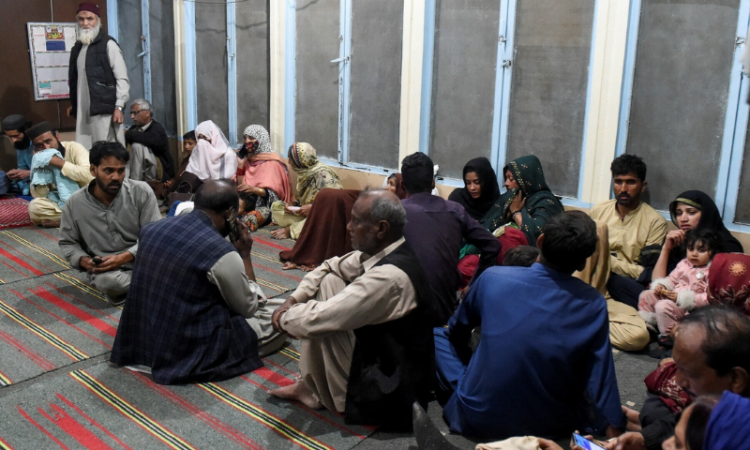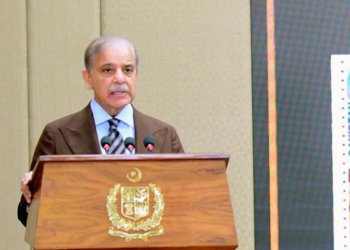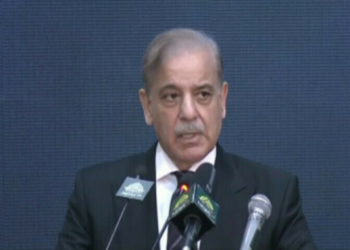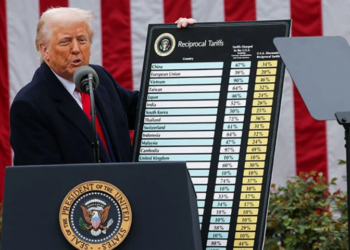Bolan/Quetta/Islamabad, March 12, 2025: Security forces have rescued at least 190 passengers and killed 30 terrorists as an extensive rescue operation continues into its second day after terrorists hijacked the Jaffar Express near Balochistan’s Bolan district, state media reported on Wednesday.
The attack and hostage crisis
The unprecedented hostage situation began on Tuesday near the Mashkaf Tunnel, approximately 157 kilometers from Quetta, when terrorists ambushed the Jaffar Express, taking more than 400 passengers hostage, including security personnel.
Security sources confirmed that 190 passengers, including women and children, have been rescued so far, while the remaining hostages are still being held. Reports indicate that 30 terrorists have been killed, while the operation to neutralize the remaining assailants continues.
According to state-run Radio Pakistan, at least 37 injured victims have been transported for medical treatment. Security sources revealed that the terrorists are believed to be in contact with their facilitators in Afghanistan and have deployed suicide bombers near hostages, wearing explosive vests as human shields.
Officials stated that suicide bombers had taken women and children hostage at three different locations, making the operation extremely delicate due to the risk to civilian lives.
Security forces’ response and casualties
Security forces launched a massive operation in the Dhadar area of Bolan Pass despite challenges posed by the remoteness of the location.
Though exact casualty numbers remain unconfirmed, officials have reported that at least 10 people, including the train’s locomotive driver and eight security personnel, have lost their lives. It remains unclear whether the freed hostages were rescued through military action or released by the terrorists.
The hijacking marks the first of its kind in Pakistan, as no previous terrorist attempt has involved seizing an entire train and its passengers. The banned Baloch Liberation Army (BLA) has claimed responsibility, asserting that they had freed some hostages, though these reports remain unverified.
International condemnation and calls for hostage release
The attack has drawn widespread international condemnation.
Iranian Foreign Ministry spokesperson Ismail Baghaei strongly condemned the incident, expressing grave concern over the targeting of innocent civilians. He reaffirmed Iran’s firm stance against terrorism and offered support to Pakistan. The Iranian Embassy in Islamabad also denounced the attack as a cowardly crime against humanity, emphasizing that targeting civilians is a gross violation of human rights.
The United Nations (UN) also condemned the attack and demanded the immediate release of hostages. UN Secretary-General Antonio Guterres’ spokesperson, Stéphane Dujarric, stated:
“We condemn any hostage-taking and call for their immediate release. We are closely monitoring the situation.”
Meanwhile, the Human Rights Commission of Pakistan (HRCP) expressed grave concern, urging all parties to pursue a peaceful and political solution to the conflict in Balochistan.
Government’s stance and security measures
Interior Minister Mohsin Naqvi, in coordination with Balochistan Chief Minister Sarfraz Bugti, assured full government support to bring the perpetrators to justice. Both leaders pledged to ensure the attackers face exemplary punishment.
President Asif Ali Zardari condemned the attack, stating that the Baloch people reject such terrorist actions. Prime Minister Shehbaz Sharif vowed that the “beastly terrorists” would be dealt with severely.
In response to the incident, Pakistan Railways temporarily suspended all train operations to and from Balochistan, ensuring the safety of passengers.
To assist affected families, Pakistan Railways established help desks at Rawalpindi and Quetta Railway Stations to provide information on missing passengers. Emergency contact numbers were also released for inquiries.
Survivors’ accounts of horror
Survivors recounted the terrifying ordeal upon arrival in Quetta.
One elderly rescued passenger described how the attack began: “A rocket hit the train’s engine, and then they opened fire. It was terrifying.”
A rescued woman, visibly shaken, stated: “We were anxious and sweating. I told my husband, ‘Let’s leave quickly.’”
Another survivor, Mohammad Ashraf, who was traveling from Quetta to Lahore, recalled:
“They separated the women and elderly and told us, ‘You can go.’ We walked for 7-8 kilometers to the nearest railway station.”
Ongoing military operation and challenges
Security forces are conducting the rescue operation with extra caution, prioritizing civilian safety. By late Tuesday night, 104 passengers were successfully evacuated to the Paneer railway station, with relief trains transferring them to Mach.
Railway officials revealed that the Jaffar Express had departed Quetta with approximately 450 passengers, including over 200 security personnel.
With the Balochistan government declaring an emergency, hospitals in Sibi have been placed on high alert, while additional security forces continue arriving at the attack site.
Details of the attack near Mashkaf tunnel
The Jaffar Express, which departed Quetta at 9:00 AM, was attacked at approximately 1:00 PM near Railway Tunnel No. 8.
Attackers fired rockets at the locomotive, forcing the train to halt. The driver was critically injured, and a heavy gunfight ensued between security forces and the terrorists.
Eyewitnesses reported that the attackers detonated explosives on the railway track, causing damage. The assailants, who were heavily armed with automatic weapons and rocket launchers, checked passengers’ identities before taking hostages.
Security sources revealed that the terrorists had split into small groups, making it difficult to neutralize them quickly. Additional security squads continue arriving as the operation remains ongoing.
As rescue efforts persist, Pakistan’s government and security forces remain committed to securing the safe recovery of all hostages and bringing the perpetrators to justice.








